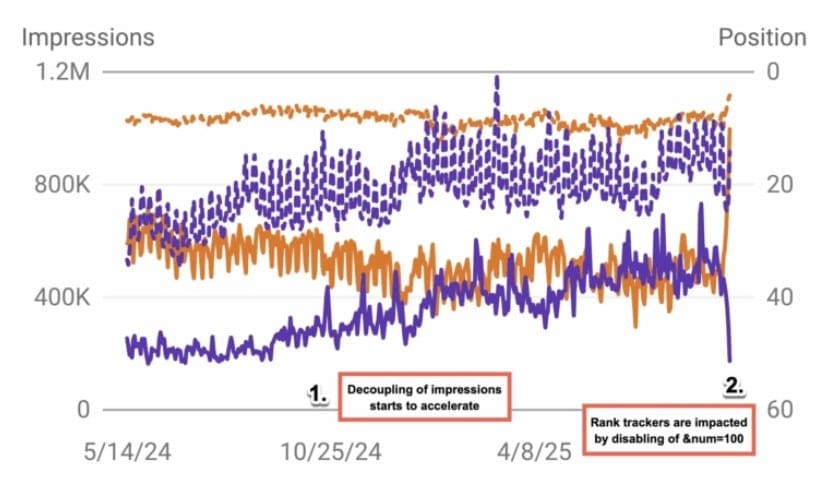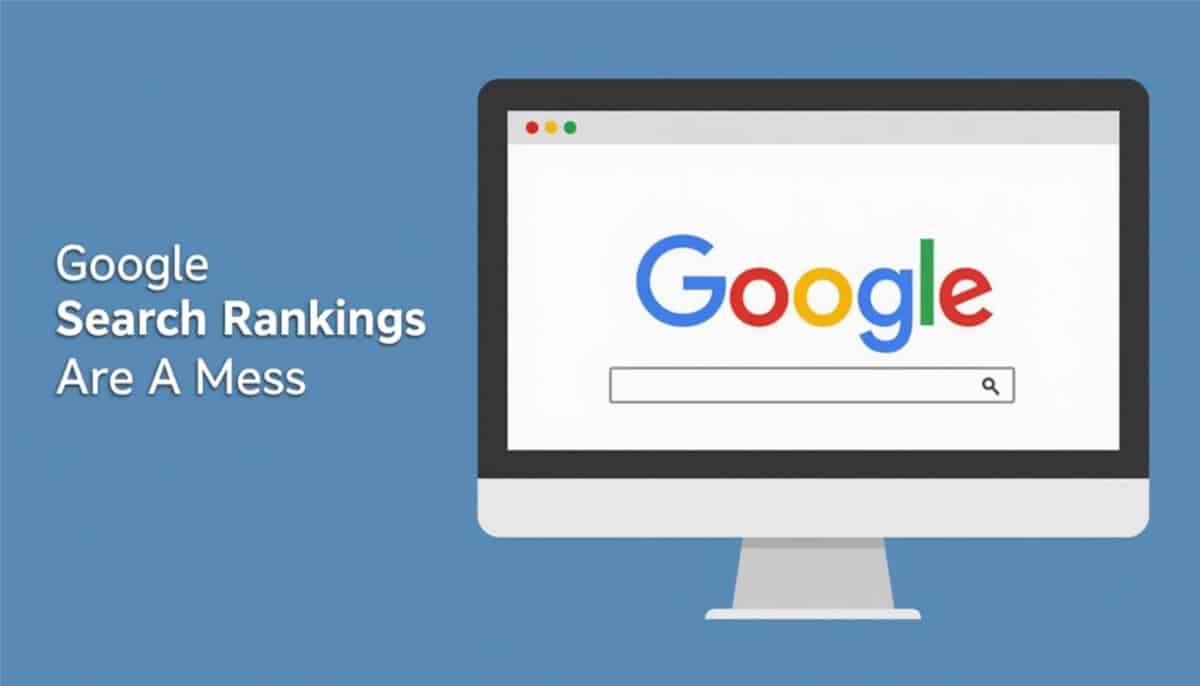Google’s recent tweak has stirred up a full-blown tracking crisis.
Late last week, Google quietly pulled the plug on showing 100 results per page. Nothing—just like that. If you’d been using the &num=100 parameter, you’ve likely noticed it now does… nothing. Nada. This one-line change has cascading consequences: tools that scraped a hundred results in one fell swoop suddenly have to send ten times as many queries to cover the same ground. And that’s assuming they even still work.
Third-party rank-tracker chaos
Imagine your favorite rank-checking tool humming along, fetching positions one through one-hundred in a single request. Now imagine it throttled to just ten or twenty at best. That’s the reality for many platforms today. A handful have publicly flagged the issue and promised workarounds, while others are keeping quiet—yet you can still tell. When rank reports start showing giant blanks or wildly fluctuating numbers, you know something’s off. Some data points vanish altogether. It’s like binge-watching your favorite show and finding half the episodes gone.
Search Console’s own stumble
As if third-party tools weren’t enough, even Google Search Console seems to be suffering whiplash. Multiple SEOs, including Brodie Clark, have flagged a sudden drop in desktop impressions paired with a spiking average position.
Brodie Clark shared this chart:

It looks like a roller-coaster gone rogue.
Either impressions are tanking or positions are magically improving—neither scenario feels entirely plausible. So which is it?
Why should you care?
Because the organic-search data you pore over every morning might be misleading you right now. Are you really climbing the ranks, or is the new results-per-page limit fooling both your tools and Search Console? Was the &num=100 removal an innocent bug, or an intentional tactic to thwart scrapers? Google hasn’t said. I’m still poking around for answers—bug or feature removal?
In the meantime, be cautious. Double-check your reports, question sudden spikes or dips, and don’t assume every shift is user-driven. Scrutinize your own clicks, impressions, and conversions rather than relying solely on rank spreadsheets. And if you’ve spotted odd trends—or found clever workarounds—please share.
What do you make of all this? Have you noticed your rankings looking too good to be true? Drop a comment below and let’s crowdsource the fix. Follow us on Facebook, X (Twitter), or LinkedIn for updates, insights, and maybe a few more hair-pulling SEO stories.
Comet, the AI browser by Perplexity, is reshaping online shopping and affiliate marketing.
Sources:
- www.seroundtable.com/google-search-drops-100-results-parameter-40097.html
- www.brodieclark.com/the-great-decoupling-num100/
- www.searchengineland.com/google-search-rank-and-position-tracking-is-a-mess-right-now-461984



Do You Still Need a Website in 2026? Google’s Search Team Weighs In
Google Dominance Grows in Azerbaijan as Yandex Market Share Slumps